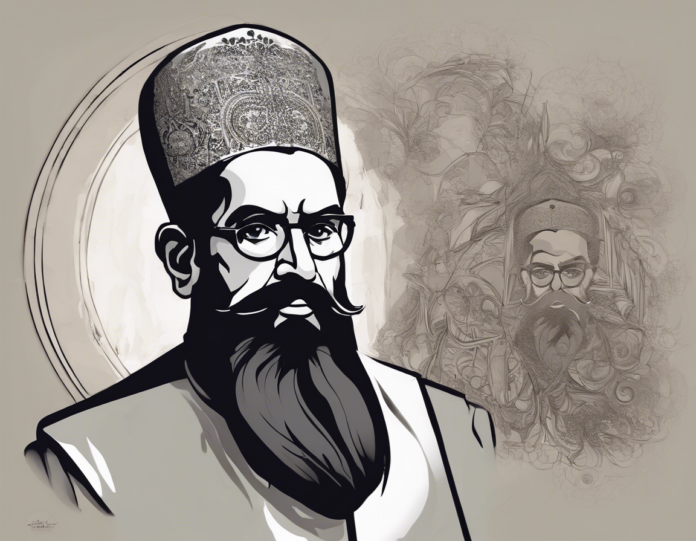Introduction
Dadabhai Naoroji, also known as the Grand Old Man of India, was a prominent leader in the Indian independence movement in the late 19th and early 20th centuries. Born in 1825 in Bombay, Naoroji was a distinguished scholar, educator, and politician who played a crucial role in advocating for Indian self-rule and challenging British colonialism. His contributions to the Indian nationalist movement and his pioneering ideas on economic self-sufficiency and social justice continue to inspire generations of Indians.
Early Life and Education
Naoroji was born into a Parsi family in Bombay, which was then part of British India. He received his early education at the Elphinstone Institution in Bombay before moving to London in 1855 to further his studies. In London, Naoroji studied at University College London and became one of the first Indian professors in Britain.
Political Career and Advocacy
Naoroji’s political career began in the 1860s when he joined the Indian National Congress, a political party that played a crucial role in the Indian independence movement. He was elected as the president of the Congress in 1886, becoming the first Asian to hold this position.
One of Naoroji’s key contributions was his advocacy for the “drain theory,” which highlighted how British colonial policies were draining India of its wealth. He argued that India’s economic resources were being exploited for the benefit of Britain, leading to impoverishment and underdevelopment in the country.
Naoroji also championed the cause of Indian representation in the British Parliament, calling for greater political autonomy and self-governance. He was elected as a Member of Parliament in Britain in 1892, becoming the first Indian to be elected to the House of Commons.
Economic Ideas and Social Reforms
In addition to his political activism, Naoroji was a pioneering thinker in the field of economics. He advocated for economic self-sufficiency and the promotion of Indian industries to reduce dependence on British imports. Naoroji’s ideas laid the foundation for the Swadeshi movement, which promoted indigenous production and self-reliance.
Naoroji was also a strong advocate for social reforms, including the abolition of child marriage, promotion of education for women, and eradication of untouchability. He believed in the principles of equality and social justice, and worked towards creating a more inclusive society in India.
Legacy and Impact
Dadabhai Naoroji’s contributions to the Indian independence movement and his pioneering ideas on economic self-sufficiency and social reform continue to be celebrated in India and beyond. He inspired a generation of leaders, including Mahatma Gandhi and Jawaharlal Nehru, who carried forward his legacy of advocating for independence and social justice.
Naoroji’s legacy is commemorated through institutions and scholarships in India, and his ideas continue to shape discussions on economic development and social reform in the country. As the Grand Old Man of India, Dadabhai Naoroji remains a revered figure in Indian history, symbolizing the ideals of self-determination, equality, and progress.
FAQs
-
What was Dadabhai Naoroji’s significance in the Indian independence movement?
Dadabhai Naoroji was a pioneering leader in the Indian independence movement, advocating for self-rule, economic independence, and social reform. He played a crucial role in raising awareness about British colonial exploitation and promoting Indian representation in political institutions. -
What was the “drain theory” that Dadabhai Naoroji advocated for?
The drain theory was a concept introduced by Naoroji that highlighted how British colonial policies were draining India of its wealth and resources. He argued that the economic exploitation of India by the British was leading to poverty and underdevelopment in the country. -
What were some of Dadabhai Naoroji’s economic ideas?
Naoroji advocated for economic self-sufficiency and the promotion of Indian industries to reduce dependence on British imports. He laid the foundation for the Swadeshi movement, which aimed at promoting indigenous production and self-reliance. -
How did Dadabhai Naoroji contribute to social reforms in India?
Naoroji was a strong advocate for social reforms, including the abolition of child marriage, promotion of education for women, and eradication of untouchability. He believed in the principles of equality and social justice, working towards a more inclusive society. -
What is Dadabhai Naoroji’s legacy in modern India?
Dadabhai Naoroji’s legacy continues to be celebrated in India, with institutions and scholarships named in his honor. His ideas on economic self-sufficiency and social justice remain relevant in contemporary discussions on development and reform in the country.












